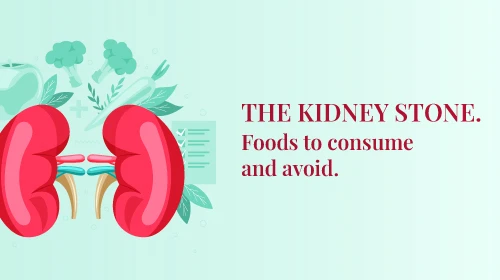
The Top 10 Foods That Can Cause Kidney Stones: Insights by Dr. Sandeep Nunia
Introduction:
Dr. Sandeep Nunia, a renowned Urologist, sheds light on the correlation between diet and kidney stone formation. Kidney stones, crystallized deposits that form in the kidneys, can be excruciatingly painful and debilitating. While various factors contribute to their development, dietary choices play a significant role. In this comprehensive guide, He is an expert Urologist in Jaipur and Provides Kidney Stone treatment in Jaipur, Rajasthan.
What are Kidney Stones?
Kidney stones are solid salt and mineral deposits that develop in the kidneys. They can range in size. They might be as small as a grain of sand or as large as a stone that can obstruct the urinary tract. Kidney stones are formed when the urine contains excessive crystal-forming substances like calcium, oxalate, and uric acid. Small kidney stones may pass through the urinary system undetected, but larger stones can be excruciating and demand medical attention. Often, kidney stones have no definite or single cause. Several factors combined increase the risk of the formation of kidney stones. Usually, kidney stones are formed due to obesity and the consumption of certain foods, as well as some medications, supplements, and medical conditions.
There are the Top 10 Foods That Can Cause Kidney Stones
- Sodium-rich Foods:
Excessive sodium intake can increase calcium excretion in the urine, leading to the formation of calcium-based kidney stones. Processed foods, canned soups, and fast food items are notorious for their high sodium content. Dr. Nunia advises his patients to opt for fresh, whole foods and to limit sodium intake to mitigate this risk.
- Red Meat:
High consumption of red meat, especially when cooked at high temperatures, can elevate the risk of kidney stone formation. The protein and purine content in red meat may contribute to uric acid stone formation. Dr. Nunia recommends moderation in red meat consumption and opting for leaner protein sources like poultry, fish, and plant-based proteins.
- Organ Meats:
Organ meats such as the liver and kidneys contain high levels of purines, compounds metabolizing into uric acid. Excessive uric acid in the body can crystallize and form kidney stones. Dr. Nunia advises limiting the intake of organ meats, especially for individuals prone to uric acid stones or with a history of gout.
- Dairy Products:
While dairy products are excellent sources of calcium and essential nutrients, excessive consumption may increase the risk of calcium oxalate stones. Dr. Nunia recommends a moderate intake of low-fat dairy products and encourages his patients to balance calcium intake with other dietary factors to prevent stone formation.
- Sugar-sweetened Beverages:
Regular consumption of sugar-sweetened beverages like soda and fruit juices can elevate the risk of kidney stones. High sugar and fructose content in these beverages may lead to dehydration and alter urinary composition, facilitating stone formation. Dr. Nunia advocates water as the primary beverage choice to maintain hydration and prevent stone formation.
- Oxalate-rich Foods:
Certain foods high in oxalates, such as spinach, rhubarb, beets, nuts, and chocolate, can predispose individuals to calcium oxalate stone formation. Dr. Nunia emphasizes moderation in consuming oxalate-rich foods and encourages pairing them with calcium-containing foods to reduce oxalate absorption.
- Processed Foods:
Processed foods often contain additives, preservatives, and high levels of sodium, which can adversely affect kidney health. Dr. Nunia advises his patients to prioritize whole, unprocessed foods and to limit the intake of processed snacks, convenience meals, and canned foods to reduce the risk of kidney stone formation.
- Caffeine:
While moderate caffeine consumption is generally safe, excessive intake can lead to dehydration, a significant risk factor for kidney stone formation. Dr. Nunia recommends limiting caffeine intake, especially for individuals with a history of kidney stones, and encourages adequate hydration with water throughout the day.
- Alcohol:
Excessive alcohol consumption can lead to dehydration and increase the risk of uric acid stone formation. Beer, in particular, contains high purine levels, further predisposing individuals to kidney stone development. Dr. Nunia advises moderation in alcohol consumption and encourages his patients to prioritize hydration to prevent stone formation.
- High Oxalate Beverages:
Certain beverages like tea, coffee, and certain types of beer contain high levels of oxalates, which can contribute to calcium oxalate stone formation. Dr. Nunia recommends moderation in consuming these beverages and encourages his patients to maintain a well-balanced diet rich in fruits, vegetables, and whole grains to minimize the risk of kidney stones.
Conclusion:
Dr. Sandeep Nunia underscores the importance of dietary modifications in preventing kidney stone formation. By avoiding or moderating the intake of the top ten foods known to contribute to kidney stone development, individuals can significantly reduce their risk and promote kidney health. then you should consult the Best Urologist In Jaipur. Dr Sandeep Nunia is the most reputed Urology doctor in Jaipur and has years of work experience and is the best Urologist in Jaipur for treating ailments such as Laparoscopic treatment, Female Urology, Sexology treatment, Uro Oncology, and Kidney stone treatment.